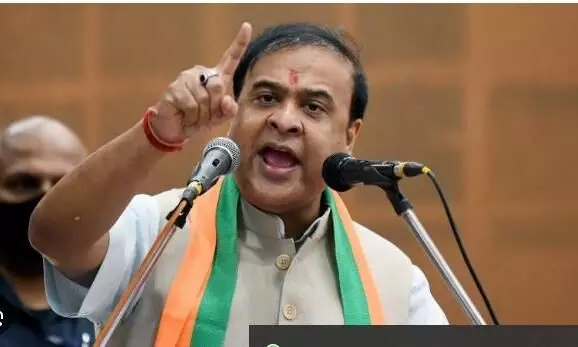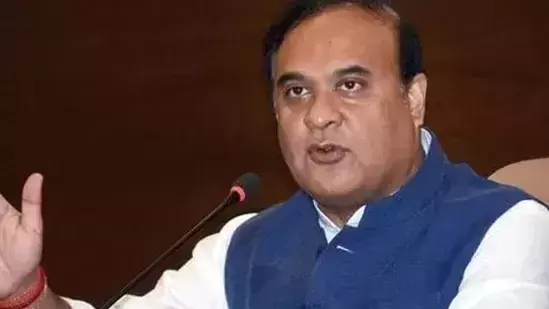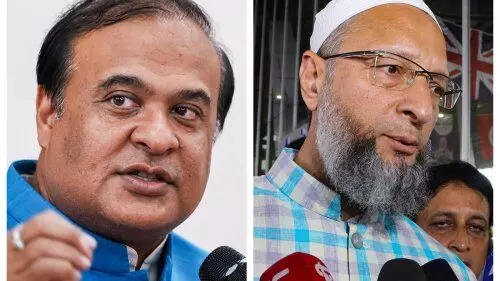
BJP doesn't need "miya" votes for 10 years due to social conditions, claims Assam CM
text_fieldsAssam Chief Minister Himanta Biswa Sarma (file photo)
Assam Chief Minister, Himanta Biswa Sarma, has stated that the BJP does not require the votes of the "Miya" people, referring to Muslims of Bengali origin living in riverine sandbar areas, for the next decade.
He linked this statement to the need for certain social changes, such as abandoning child marriage and adopting family planning, before seeking their votes.
Sarma expressed his view by saying, "When elections come, I myself will request them not to vote for us. When you follow family planning, stop child marriage, and shed fundamentalism, then you vote for us. To complete these, it will take 10 years. We will seek votes after 10 years, not now."
He further elaborated that individuals voting for him and the BJP should limit their families to two or three children, ensure that their daughters attend school, refrain from child marriages, and shift away from fundamentalism toward adopting Sufism. He emphasised that he would only seek votes from them after these conditions were met.
Sarma's government in Assam has been actively cracking down on child marriages, with over 5,000 arrests made since February. Cases are filed under various laws, including the Protection of Children from Sexual Offences (POCSO) Act and the Prohibition of Child Marriage Act, depending on the age of the girls involved.
In his recent remarks, Sarma suggested that the "Miya" people could express their support for the BJP through slogans without actually voting for the party. He stated, "BJP will do public welfare and they will support us, but they don’t need to vote for us. There is no harm in supporting us. Let them shout ‘zindabad’ for Himanta Biswa Sarma, Narendra Modi, and BJP."
Sarma's comments come after he faced criticism in July for attributing inflated vegetable prices in parts of Assam to the "Miya" people, accusing them of raising prices when selling vegetables in urban areas.
The term "Miya" is used by Muslims across South Asia to mean "gentleman," but it is viewed as an ethnic slur in Assam when referring to Muslims of Bengali origin.













